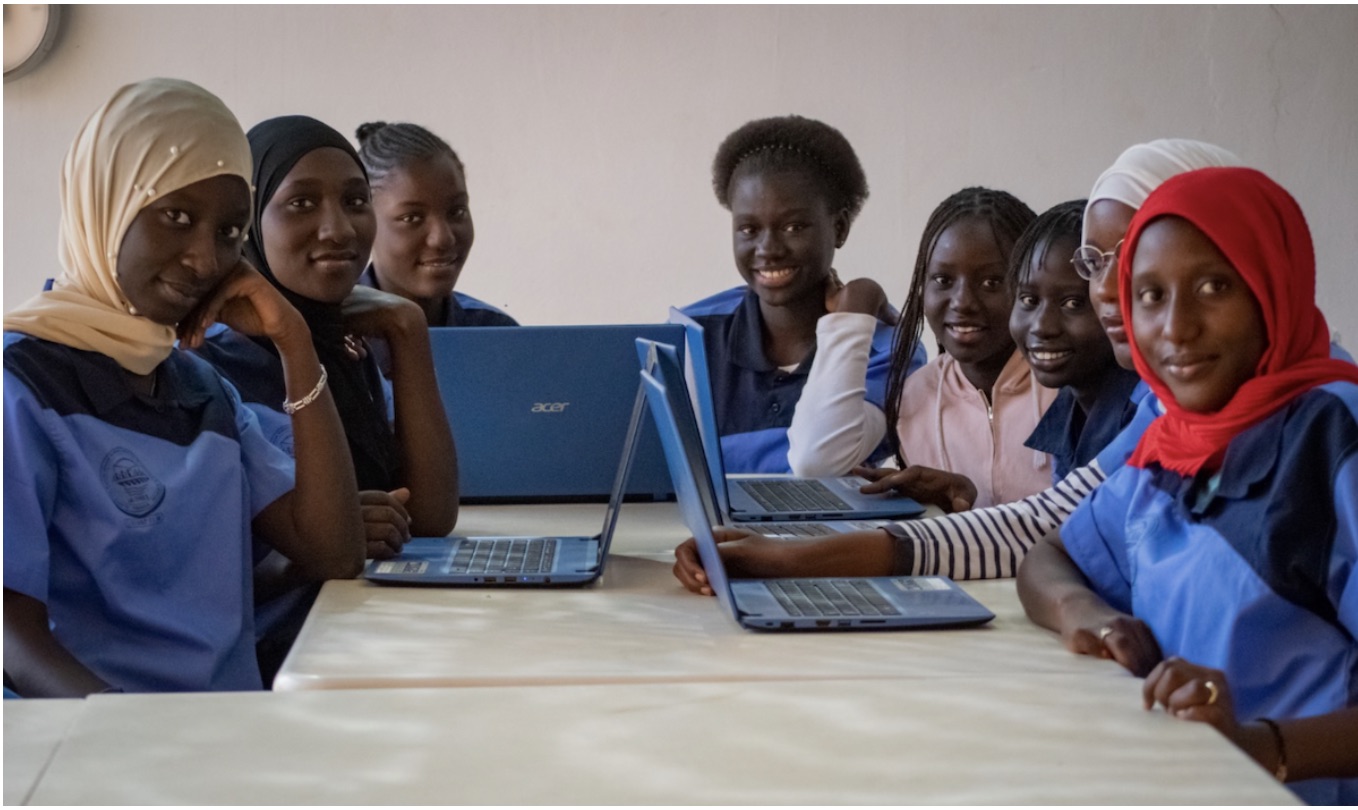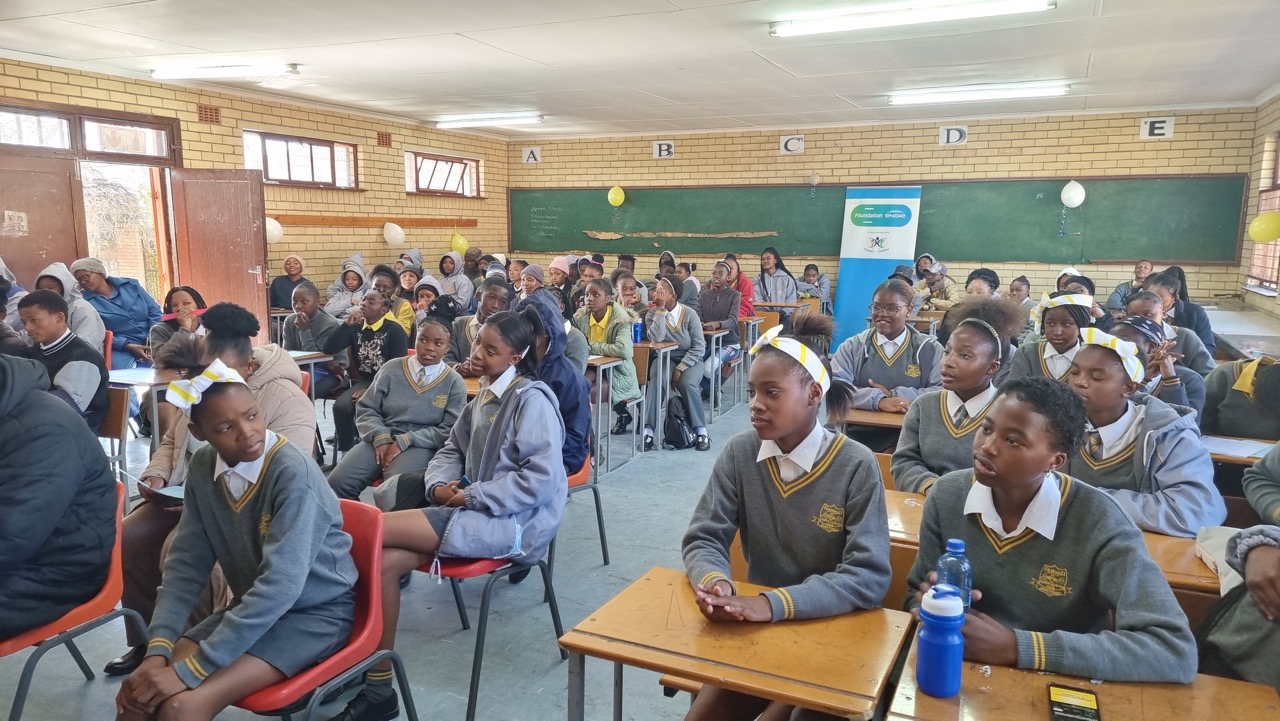Today’s girls will be tomorrow’s women.
October 11 is the International Day of the Girl, which focuses on the need to address the challenges faced by girls, and to promote girls’ empowerment and respect for their human rights.
Adolescent girls have the right to a safe, healthy life and to education, not only during their critical formative years, but also once they become women. If girls are supported through adolescence, they have the potential to change the world – as tomorrow’s workers, mothers, entrepreneurs, mentors, heads of households and political leaders. Investing in the potential of adolescent girls means defending their rights today and ensuring a fairer, more prosperous future. A future in which they will have an equal share with half of humanity in solving the crises of climate change, political conflict, economic growth, disease prevention and global sustainability.
Girls break down barriers posed by stereotypes and exclusion, particularly those related to children with disabilities and those living in marginalized communities. As entrepreneurs, innovators and initiators of global movements, girls are creating a relevant world for themselves and for future generations.
Gender equality and women’s empowerment are integral to all 17 goals. Only by guaranteeing the rights of women and girls across all the goals will we achieve justice and inclusion, economies that work for all, and the maintenance of our shared environment, now and for future generations.
The ENGIE Foundation is convinced that the role and future of girls, future women, are essential to help achieve the goals of Sustainable Development.
The ENGIE Foundation pays particular attention to projects that have an impact on the lives of young girls through :
- access to education and culture
- access to scientific careers
- challenging gender prejudice and promoting gender equality
- The ENGIE Foundation wants to give young girls a chance
For International Girls’ Day 2023, the ENGIE Foundation is highlighting girls’ education, particularly in sciences. Oriented by gender norms and stereotypes conveyed by textbooks, teachers and parents, girls are few and far between in scientific and technological fields. What’s more, the absence of female role models does not encourage them to pursue science-related studies.
According to UN Women, worldwide, women account for just 35% of STEM (Science, Technology, Engineering and Mathematics) graduates, and only 3% of ICT (Information and Communication Technology) graduates.
Girls’ access to science and technology is a priority for 2023-2025
Discover our commitments right by our partners’ side
Promoting diversity and girls' access to science with ENS Paris-Saclay
As part of its equal opportunities plan, ENS Paris-Saclay is involved in a number of programs designed to help young people (high school, middle school and high school students), particularly girls, enter higher education and research careers.
The ENGIE Foundation has made access to science a priority in its education program.
That’s why the ENGIE Foundation is supporting ENS Paris-Saclay for 2 school years in its science awareness programs for young people (especially girls), in order to :
- stimulate young people’s interest in science,
- boost the academic ambitions of young people from different socio-territorial backgrounds, and of girls,
- limit self-censorship.

On October 6, as part of the Fete de la Science 2023, ENS Paris-Saclay organized a Science Village for 700 young people.
Teacher-researchers, doctoral candidates and students welcomed 300 primary school pupils to numerous “Mini Researchers” workshops in all scientific disciplines, in the presence of Nathalie Carrasco, President of the School, and Anne PEYROCHE, Vice-President in charge of strategy and resources.
400 middle and high school students (around 15 classes) attended mini-conferences with Alain Aspect, ENS Paris-Saclay alumnus, Nobel Prize in Physics 2022, Emeritus Research Director at CNRS, affiliated professor at ENS Paris-Saclay, professor at Institut d’Optique Graduate School (IOGS) and École Polytechnique.
WIA Code program: Coding training for high school girls in Senegal with Women In Africa

Women in Africa has set up a coding and science training program for young girls at the Lena Mama Diop High School in Ngaparou, Senegal.
The first phase, an introduction to coding, enables the girls to develop their computer skills and pave the way for new study prospects.
The second phase, dedicated to mentoring, enables them to cultivate soft skills such as confidence, leadership and public speaking.
A program like WIA Code is more than relevant, it enables high-school girls to develop new skills by introducing them to the use of IT tools and the principle of coding, thus adding other perspectives to their studies. These perspectives are complemented by the mentoring phase and the various workshops that revolve around professional integration and aim to raise awareness of the essential tools and skills that will accompany them throughout their academic and professional careers.
Impact: 76 high school girls took part in the program over two years
Testimonial from a young high school student
“You chose us from among so many others to teach us things that most of us were totally unaware of. Your program may be coming to an end, but it will have an impact throughout our lives. Through this program, you’ve taught us the basics and the depths of computing. Like, for example, how to create an application. But beyond that, you’ve awakened our team spirit, taught us to be patient, to communicate with others and to see things through to the end. We’re happy to say that you haven’t wasted your time. You’ve given us a clear picture of where we want to be in the future. We won’t give up and we’ll keep up the momentum. Many thanks to you!
Access to education is a right that is not guaranteed everywhere in the world: today, 118.5 million girls aged between 6 and 18 are still out of school for various reasons (conflict, war, prejudice, forced marriage, early pregnancy). And yet, the benefits of access to education have been proven to be numerous: poverty reduction, lower infant mortality rates, reduced violence against women and better HIV prevention.
Leadership for young schoolgirls in South Africa with Valued Citizen

For 20 years, the ENGIE Foundation has been a long-standing partner of the NGO Valued Citizens Initiative.
Valued Citizens is an association that aims to inspire individuals to become responsible citizens, determined to lead their lives by engaging with South Africa’s democracy and economy.
Since 2009, the ENGIE Foundation has been supporting the NGO’s iNSIRE program.
This iNSPIRE program aims to address the problem of gender inequality and poverty in communities by developing and challenging girls’ self-perception, promoting their emotional well-being and helping them to become young leaders in their communities, becoming the positive role models that young people expect.

Impact 2023: 171 “Valued Citizens” teenagers took part in the leadership training courses and implemented their real-life, medium-scale citizenship project within their school community, with a direct impact on 3,197 students involved in carrying out their project and an indirect impact on 9,414 middle-school students.
With the NGO Toutes à l'école, focus on girls' education in Cambodia
The NGO Toutes à l’école, founded by journalist Tina Kieffer in 2005, aims to bring a high level of education to the most impoverished girls in Cambodia, so that they can become free, educated women.
Every year, 100 new girls aged 5 to 6 from the poorest families join the Happy Chandara campus in the suburbs of Phnom Penh, Cambodia, from kindergarten onwards. They will have the opportunity to pursue a high-level curriculum in kindergarten, primary school, junior high and high school, taught in Khmer, English and French.
The work continues with young baccalaureate students pursuing their studies, who are accommodated in the two Chandara Students’ Homes in Phnom Penh, where they build an independent adult life in a secure environment.
As early as 2016, sensing the scale of the climate crisis, the association integrated their first environmental protection courses into its educational program and created permaculture vegetable gardens on the Happy Chandara campus.
Today, the IPCC report is very clear: Cambodia is one of the country’s most vulnerable to global warming.
With this in mind, the association aims to make Happy Chandara the first entirely green pilot school in Cambodia.
The ENGIE Foundation supports the creation of the Green team
The Green Team includes trainee engineers from the “Grandes Ecoles” (Ecole Polytechnique, Ecole Centrale – Supélec Paris and Lyon), agronomists or from communications schools such as Celsa, all of whom are passionate about environmental issues, designing educational tools, running workshops with our students and prototyping projects (such as greening spaces and creating educational videos).
Trainees lead :
- workshops to raise awareness of the ecological transition for students and campus staff
- organic soap-making workshops for boarding schools and hygiene baskets for families
- paper recycling workshops for postcards sent three times a year to students’ godparents
- eco-committees with our students
- plastic collections around the school and alongside institutional partners in the capital Phnom Penh
To give students access to the best training, the association forges partnerships with universities and “Grandes Ecoles” in Europe and around the world.
The ENGIE Foundation is supporting a student, TOLA CHHORN, with a scholarship to the Ecole des Mines.
